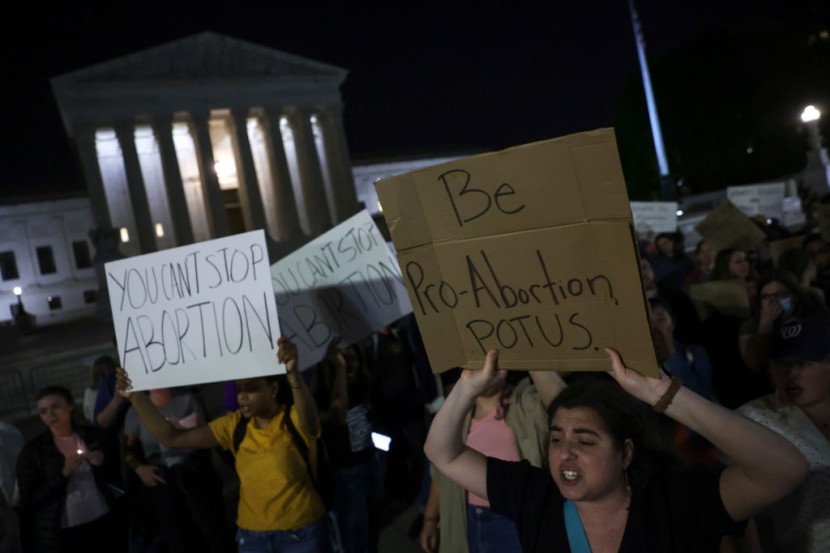
An initial draft majority opinion penned by Justice Samuel Alito stated that the United States Supreme Court has voted to abolish Roe v. Wade which gave people the right to access abortion legally all across the country.
The draft opinion obtained by Politico is a comprehensive, unabashed denunciation of the 1973 ruling that established federal constitutional protections for abortion rights, as well as a subsequent 1992 ruling - Planned Parenthood v. Casey - that mainly upheld the right.
According to the draft, the court would overrule Roe v. Wade's decision that an abortion is a federal constitutional right. As per CNN, the verdict would be the most significant abortion judgment in decades, reshaping the women's reproductive health in America.
The Supreme Court has voted to strike down Roe v. Wade, according to an initial draft majority opinion written by Justice Samuel Alito and obtained by POLITICO.
— POLITICO (@politico) May 3, 2022
“We hold that Roe and Casey must be overruled,” Alito writes. https://t.co/nl3JFLx9xg
Here are the five key points of the draft opinion:
Deeply Flawed Abortion Rights Ruling
Alito contends that the 1973 abortion rights decision was a ludicrous and severely flawed ruling that created a right that was not mentioned in the Constitution and unwisely attempted to remove the complicated issue from the political branches of government.
The associate justice's draft ruling would reverse a verdict by the 5th Circuit Court of Appeals in New Orleans, which concluded the Mississippi legislation violated Supreme Court precedent by attempting to ban abortions before viability.
Constitutionally Irrelevant and Weak
According to Alito, Roe v. Wade's "survey of history ranged from the constitutionally irrelevant to the simply erroneous," and the original decision's reasoning was "exceptionally weak," with "damaging" implications.
"The inescapable conclusion is that a right to abortion is not deeply rooted in the Nation's history and traditions," he stated in the draft.
No Consequence to Other Cases
Alito also dismissed the idea that overturning Roe would lead to the court reversing other rulings like Obergefell v. Hodges, which upheld the right to same-sex marriage. He argues that the clear distinction of Roe from other cases is that "abortion destroys" potential life,
Landmark Decision Failed To End Abortion Debates
The court, Alito added, was not able to end the debate on abortion nearly a half-century ago when Roe came down, so it should leave the issue to states.
He said the Supreme Court "cannot bring about the permanent resolution of a rancorous national controversy" just by imposing a settlement and "telling the people to move on."
Leave It to the States
Associate Justice Alito wrote in his conclusion that "The Constitution does not prohibit the citizens of each State from regulating or prohibiting abortion."He added that "Roe and Casey arrogated that authority," and the high court now overrules those decisions and returns "that authority to the people and their elected representatives."
Though it's uncertain if the draft has been modified since then or if Roe has been quashed or fundamentally weakened. Though the Guttmacher Institute, which supports abortion rights, states that 21 states already have laws or constitutional amendments to push them to start banning abortion as soon as possible.
According to the Planned Parenthood Action Fund, 36 million women, as well as many more who could become pregnant, are at risk of losing access to abortion in their state. The number includes 5.7 million Hispanic or Latino people, 5.3 million Black people, 1.1 million Asians, and around 340 American Indian or Alaska Native individuals.
© 2025 HNGN, All rights reserved. Do not reproduce without permission.








